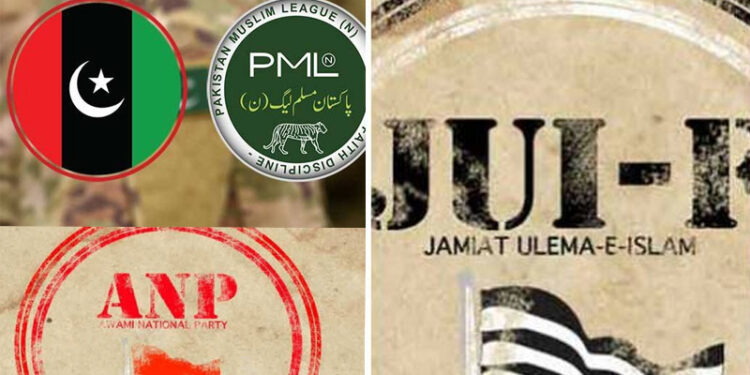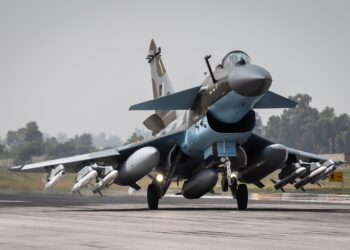In a striking act of political defiance, the Pakistan Muslim League-Nawaz (PML‑N), Pakistan People’s Party (PPP), Awami National Party (ANP), and Jamiat Ulema-e-Islam–Fazl (JUI-F) have announced their collective decision to boycott the All-Parties Conference (APC) convened today by the Khyber Pakhtunkhwa (KP) provincial government. The opposition coalition has criticized the APC as a token display of political theatre, calling instead for real, actionable policies that address pressing public concerns.
This article delves deeper into the background, motives, regional implications, and future roadmap around this high-stakes political development, offering readers detailed insight into the ongoing political tension within KP and its larger national implications.
1. What Is Happening? Opposition Rejects KP Government’s APC Invite
Today, the KP government, led by Chief Minister Ali Amin Gandapur of the Pakistan Tehreek-e-Insaf (PTI)-backed coalition, scheduled an All‑Parties Conference under the banner of fostering inter-party cooperation, particularly concerning security coordination, federal-provincial relations, and development initiatives in KP.
However, key opposition parties—PML‑N, PPP, ANP, and JUI‑F—publicly declined the invitation. They accused the provincial government of staging a politically motivated charade lacking substance. This unusual joint boycott signals fresh lines of confrontation and raises questions about the governing coalition’s political bargaining power.
2. Opposition Voices: Key Statements and Criticism
2.1 Dr. Ibadullah Khan (PML‑N, KP Opposition Leader)
Dr. Ibadullah Khan, the official Leader of the Opposition in the KP Assembly, delivered a scathing response:
- “The provincial government’s decisions are not serious. A mere APC won’t resolve our province’s pressing issues.”
- He underscored that talk is no longer enough, advocating instead for concerted action and policymaking.
- The PML‑N leader insisted on joint opposition steps, cautioning that the opposition has no intention to compromise on matters of public welfare.
2.2 PPP’s Red Flag: Muhammad Ali Shah Bacha
PPP’s provincial president, Muhammad Ali Shah Bacha, framed the APC as a political show with little impact, remarking bluntly:
- “There is an unserious government in the province, and this APC is just optics.”
- PPP, alongside other opposition parties, has bypassed participation, stating that more realistic governance mechanisms are required.
2.3 ANP and JUI‑F Also Decline
While not releasing detailed public statements, representatives of Awami National Party and Jamiat Ulema-e-Islam–F confirmed their withdrawal from the APC, accusing the government of orchestrating it primarily for public relations purposes.
3. Historical Context: Opposition Unity in KP Politics
3.1 KP’s Polarised Political Climate
Khyber Pakhtunkhwa has witnessed deep political divisions since 2013, with PTI leading provincial governments and alternating between alliances with the Pakistan Muslim League–Quaid (PML‑Q) and other groups. Opposition factions have historically aligned on issues like education, hydel power projects, and security governance, often forming protest alliances or issuing joint resolutions.
3.2 Precedents for Boycotts
Earlier, PTI-led initiatives—such as invoking constitutional articles or pushing for provincial autonomy—drew opposition criticism and walkouts. Today’s joint refusal is a more unified step, possibly signifying heightened frustration.
4. What the Opposition Is Demanding
4.1 From Words to Action
The central contention is that the APC remains a symbolic rather than legislative event. Dr. Ibadullah emphasized that the opposition expects legally enforceable resolutions, not brochures or media spectacles.
4.2 Focus Areas
Opposition demands are expected to include tangible policies on:
- Health, education, and public service delivery
- Transparent governance systems and monitoring frameworks
- Provincial autonomy under the 18th Amendment
- Security coordination with the federal government
- Transparency in development spending
4.3 Future Coordination Plan
While the APC is being skipped, the opposition promises a joint strategy involving:
- Weekly caucus meetings
- Public hearings and petitions
- Community-level protests or public forums
- Collective legislative pressure in the provincial assembly
5. KP Government’s Response and Strategic Calculations
While the government has yet to publicly respond to the boycott, insiders reveal that officials are disappointed with the decision but not entirely surprised.
5.1 Govt’s Viewpoint
KP government leadership maintains that:
- The APC is a neutral, inclusive platform for cross-party cooperation
- The boycott reflects broader political opposition to PTI and its allies
5.2 Future Tactics
Analysts believe KP’s government could:
- Offer select invitations for joint committees
- Refuse to include issues earmarked by opposition in future APCs
- Use media campaigns to highlight their own achievements in education, healthcare, and infrastructure
- Engage federal stakeholders like the Caretaker Prime Minister or NA Standing Committees to provide issue resolution
6. Regional & National Implications
6.1 Federal-Provincial Dynamics
This standoff comes amid broader federal-provincial tensions, especially regarding:
- Fiscal transfers under the National Finance Commission (NFC)
- Security management and anti-terror efforts in KP and its tribal areas
- Resource development projects like the Diamer-Bhasha Dam and hydropower initiatives
6.2 Opposition Resurgence
Nationwide, the PML‑N, PPP, ANP, and JUI-F are repositioning their alliance, possibly aligning on upcoming general elections and regional assemblies, recalibrating their KP strategy as part of a coherent national platform.
7. What Next? Procedural Roadmap
7.1 KP Assembly Involvement
The opposition could:
- Submit official resolutions in the provincial assembly
- Propose amendments and escalations during assembly sessions
7.2 Citizen Engagement and Civil Society
Potential future moves may include:
- Townhall consultations
- Collaboration with NGOs and universities in public advocacy campaigns
- Voter awareness initiatives to build public pressure
7.3 Future Political Events
Look forward to:
- Repeats or revisions of the APC
- Press conference campaigns
- Electoral drives involving candidate lists, particularly for urban KP constituencies
8. Expert Opinions and Commentary
8.1 Political Analysts on Partisan Rifts
Dr. Ayesha Ilyas, a political analyst, says:
“The APC boycott in KP underlines the asymmetrical nature of its political system. Until tokens become action, expect recurring confrontations.”
8.2 Governance Watchdogs Weigh In
Transparent Governance Institute representative commented:
“If APC outcomes are restricted to media bulletins with no follow-through, institutional mistrust will deepen.”
9. Impact on Ordinary Citizens
9.1 Policy Deficit
A fragmented APC raises public concern over:
- Delayed progress in education, health, and infrastructure
- Weak policy implementation
- Reduced reassurance of provincial unity
9.2 Political Polarization
Masked partisan divides may affect public trust, particularly during upcoming local government polls in KP.
10. Summary Table: Opposition Boycott – Key Facts
| Aspect | Details |
|---|---|
| Event | KP All-Parties Conference (APC) – boycotted by major opposition |
| Boycotting Parties | PML‑N, PPP, ANP, JUI‑F |
| Boycott Date | Today |
| Primary Concern | Lack of meaningful policy content; showmanship over substance |
| Opposition’s Demand | Actionable commitments on governance, development, security |
| Next Steps | Joint opposition actions, KP Assembly engagement, public forums |
11. Conclusion: A Political Watershed in KP
The unified opposition boycott of KP’s APC is more than a skirmish—it may mark a turning point in Punjab’s governance narrative. As KP enters a charged pre-election cycle, this development carries the potential to reshape both provincial discourse and Inter-party alliances nationwide. Whether KP’s opposition can translate unified rhetoric into sustained, issue-driven action will determine the endgame of this political gamble.

























